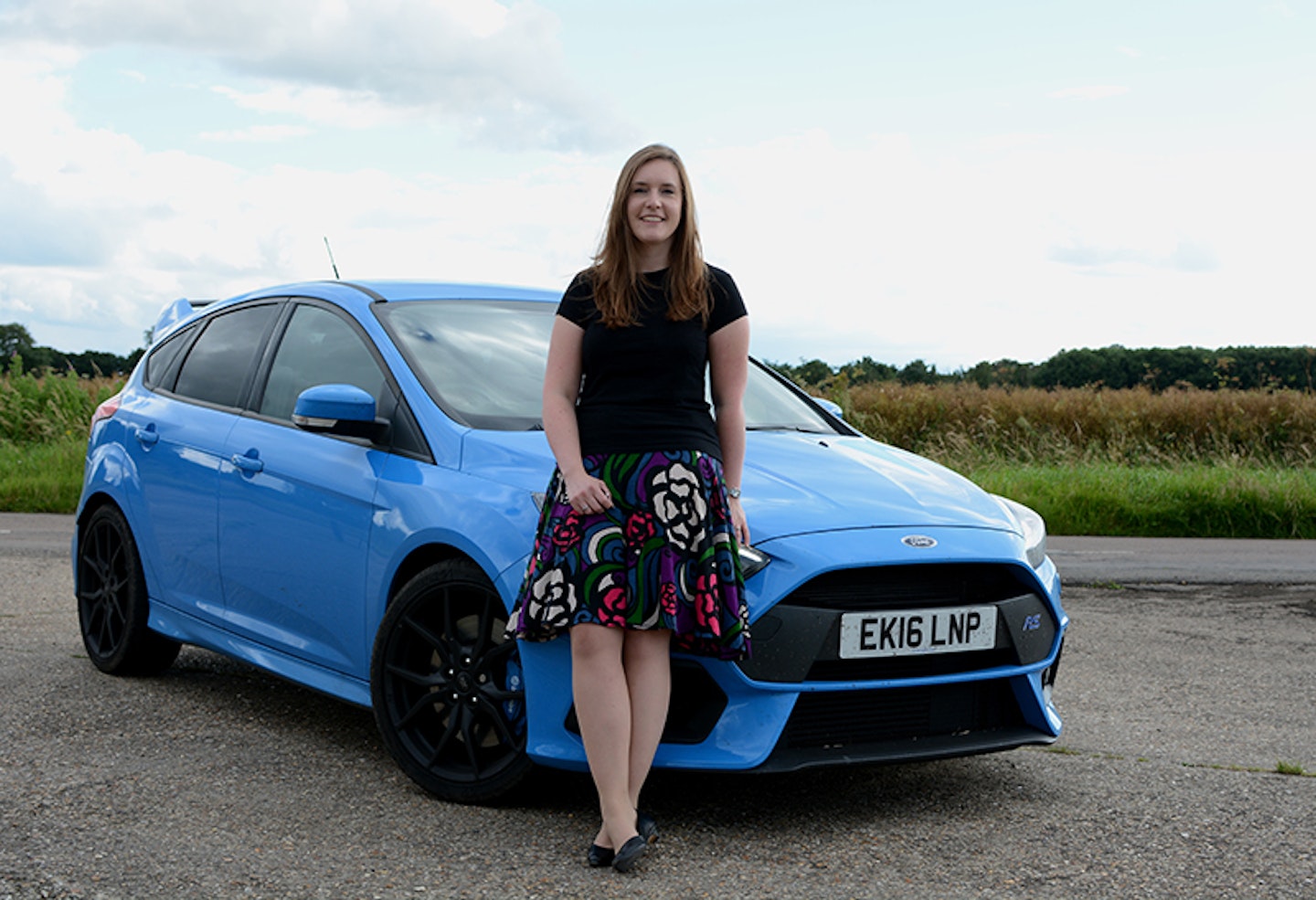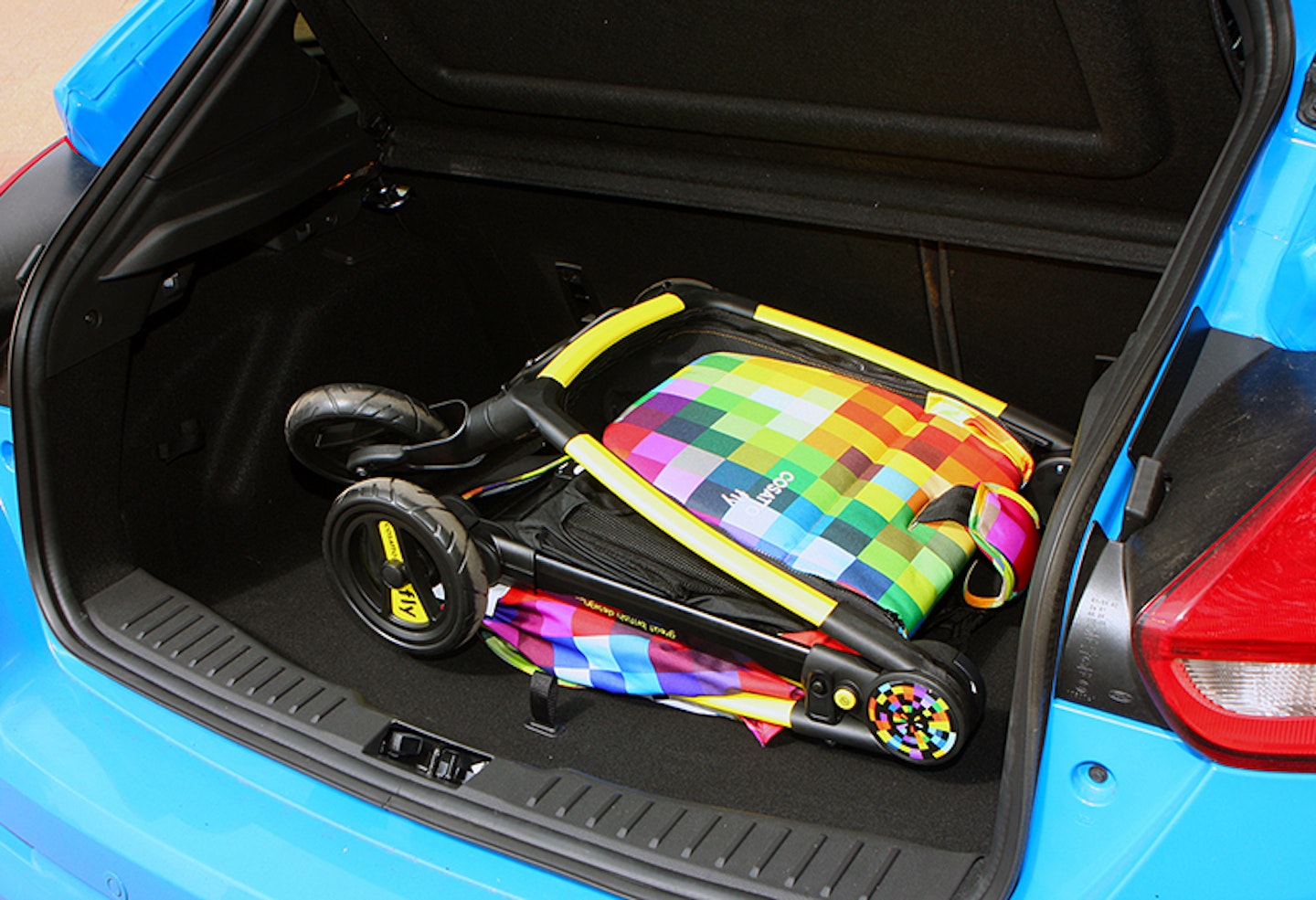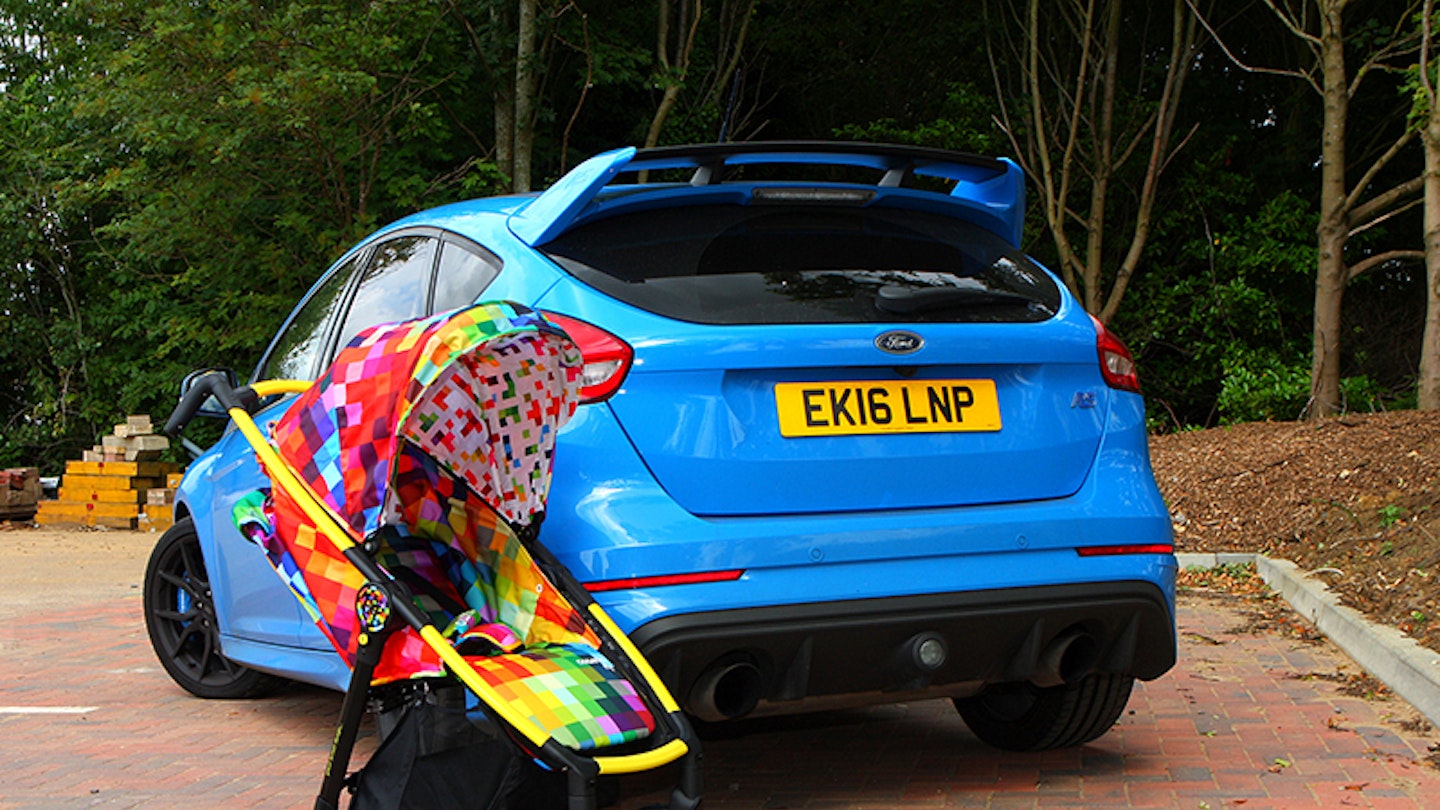The Focus RS is an odd combination of things – on one hand it’s one of the fastest, most extreme cars that Ford makes, but one the other it’s a five door hatchback with a big boot.
Fast Fords have long been sold on this principle, weekday racers capable of shaming supercars that can settle down into the routine of family life on the weekend.
Previous generations of the Focus ST (a model that sits above the diesel company car range and below the big-winged road rocket you see before you) have toed the line between speed and practicality very well – it’s arguably the ultimate fun family car.
So can this even faster version pull off the same trick with the addition of even more performance, or has its core pragmatism been compromised in the pursuit of speed?
M&B takes the Ford Focus RS for a spin

Mother&Baby Web Editor Sophie Knight put the RS to the test, to see if it really could work as a family car.
“Could the RS be a family car? On paper and in theory, yes. In Normal mode, the ride was comfortable, the speed was impressive, but you could pop to the shops with your toddler in the back without drifting around corners and roundabouts.
“The ride might be a tad too hard for a newborn, however, even in its softest mode – and in any of the firmer settings, I would definitely recommend investing in a good bra.
“The rear doors don’t open particularly wide, so getting a toddler in and out could have been easier. But his car seat fitted in easily, with plenty of little-leg room.”
Not your normal Ford Focus
Our friends at Parkers have given us the full run-down of what to expect from the Ford Focus RS.
While the Focus ST could be described as a warmed-up version of the standard car, the RS has had some substantial changes both under the bonnet and deep within its mechanical workings.
Chief among this is an engine upgrade – you get a 2.3-litre petrol motor which produces 350hp and can accelerate from 0-62mph sprint in 4.7 seconds. Few cars you’ll encounter on your regular commute will be able to keep up.

As you would imagine that level of performance needs tempering with a hefty dose of control, and in the Ford Focus RS that means all-wheel drive.
What’s that all about?
Your tyres are the only connection between you and the road. A small area of rubber known as the contact patch in a standard front-wheel drive Focus has to cope with all sorts of things - acceleration, braking and cornering forces – and when performance increases to the levels produced by the Focus RS, two wheels alone simply would not be able to cope.
To combat this Ford has divided up the power produced by the Focus RS sending some of it to the rear wheels too. Even more cleverly, it uses a suite of sensors and processors to work out which wheels have grip and which don’t at any given point, sending more power here and less there, in order to keep you pointing in the right direction. In short, the Focus RS matches its impressive straight line speed with serious cornering grip.
This system is also responsible for the car’s party trick – Drift Mode – which enables even the most ham-fisted driver to swing the back end of the car out in a huge slide and hold it there without crashing.
That’s no good to me if it doesn’t have ISOFIX mounts any more
Back to the point – does this car still work as a family hatchback? As fun as Drift Mode may sound, small children and the kind of g-forces it generates are not really compatible, unless you’ve got shares in a car valeting company. There also aren’t many places on the road where you can use it as it requires quite a bit of room for maneuver and a fairly substantial application of the throttle.
There are other compromises too. That all-wheel drive system robs space from the boot, so you get 260 litres of space compared to 316 litres in the standard car. We still managed to get our Cosatto Fly pushchair in there but it would be worth taking yours to the showroom to check – some larger travel systems may not fold up small enough.
You do still get two ISOFIX points on the outer rear seats and there’s plenty of room on the back bench to install child seats. Opt for the optional shell-backed bucket front seats and you’ll unlock even more room too, thanks to their thinness.
Perhaps the biggest considerations here are the firmer ride (not unacceptably hard, but noticeably so) and the increased running costs - CO2 emissions of 175g/km will mean £210 in annual road tax at current 2016/17 rates, and a claimed fuel economy of 36.7mpg will be a hard target to hit.

Verdict
Ask yourself how often you are going to get to use the extra performance of the Focus RS –because if the answer is “not that frequently” then it’s likely the also-quite-fast but cheaper to run Focus ST will do the job.
The good news is if you regularly find yourself on the right road with an empty car (or at the least understanding passengers) then there’s very little out there that can thrill like a Focus RS – certainly not for less than its £31,000 asking price.
Want to know more? Read the Parkers full review and road test of the Ford Focus RS. They’ve also been running an RS long-term to see if the shine eventually wears off - read the full long-term review here.
With thanks to Cosatto for the pushchair and car seat
